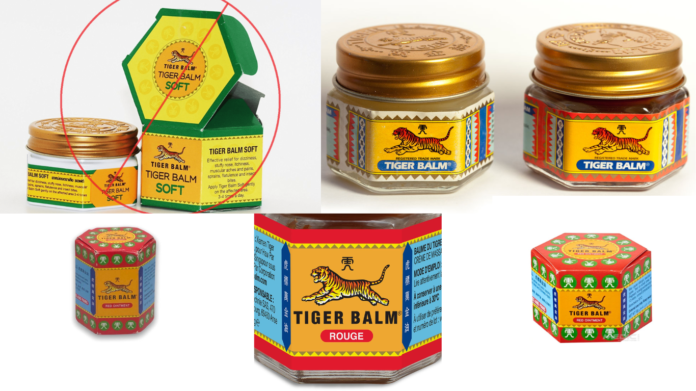Tiger Balm a well-known salve that you put on sore skin to ease pain and soreness has been a family favourite for a long time. Even so, There is a lot of confusion about whether Tiger Balm is illegal in some places or not. This piece looks at the real story behind the disagreement its possible limits and why the law in different countries has different views on it.
What Is Tiger Balm?
Late-19th-century oral pain relievers include tiger balm. China-born it is a popular herbal medicine for muscular pain headaches joint pain and bug stings. Tiger Balm relieves pain by cooling and heating. The main active components are:
- Menthol Cools and relieves discomfort.
- Camphor improves itching and muscular pain.
- Clove oil is a relaxing natural painkiller.
- Cajuput Oil boosts circulation.
Tiger Balm White (for headaches and mild pain) and Tiger Balm Red (for muscle and joint pain) are the primary ointments.
The Legal Issues: Why Is Tiger Balm Controversial?
Tiger Balm’s legality is unclear due to rigorous ingredient control in some places. Tiger Balm is legal, although some of its constituents are prohibited in other countries owing to health-related or regulatory issues.
Camphor Restrictions
Camphor a principal component of Tiger Balm is subject to stringent regulations in nations such as the United States. Ingestion of camphor can be poisonous and at elevated amounts, it may induce seizures or other serious effects.
- OTC camphor concentrations are limited to 11% by the FDA. Sales of products beyond this limit may be prohibited.
- Some previous Tiger Balm versions have greater camphor levels causing regional limits or recalls.
Unapproved Medicinal Claims
Certain nations including Canada and some regions of Europe have stringent laws governing the therapeutic claims made by products like Tiger Balm.
- Regulatory authorities necessitate empirical data to substantiate health advantages asserted on product labels. A product that makes unverified claims may face prohibition or necessitate reformulation.
Marketers promote Tiger Balm as a miracle cure for arthritis and migraines, even though it lacks the clinical evidence required to meet regulatory standards.
Import and Labeling Issues
Tiger Balm is manufactured and disseminated predominantly throughout Asia. Import limitations in some nations may affect their legal status.
- Failure to label ingredients production standards or safety information can lead to bans.
- Some counterfeit Tiger Balm products include dangerous ingredients leading to bans or limitations in Australia and New Zealand.
Is Tiger Balm Illegal in the United States?
Tiger Balm is not prohibited in the United States. It must adhere to FDA standards regarding its components and labelling.
- The usual formulations of Tiger Balm available in the U.S. are FDA-approved and deemed safe for external use.
- Consumers should exclusively get Tiger Balm from trustworthy suppliers to prevent the acquisition of counterfeit products that may include excessive camphor concentrations.
Countries Where Tiger Balm Faces Restrictions
While Tiger Balm is legal in most countries it faces restrictions in the following regions:
- The European Union briefly barred or restricted some types of Tiger Balm because they violated standards, notably those regarding labelling and false claims.
- Australia and New Zealand: Sometimes fake Tiger Balm has made it illegal to bring it into those countries. Legal products are usually allowed to be sold.
- India and Pakistan: Local stores selling phoney Tiger Balm have confused its legitimacy. Authorities may target illicit versions with harmful substances.
Health and Safety Concerns
Tiger Balm is safe when taken as intended however overuse can have unwanted effects:
- Swallowing camphor is harmful, especially for youngsters.
- Tiger Balm overuse can produce redness stinging or irritation, especially in delicate skin.
- It may interfere with other topical drugs or induce unusual allergies.
For consumer protection health officials encourage correct usage and safe labeling.
The Truth: Is Tiger Balm Banned?
Although it is not illegal anywhere regulatory health and safety issues in some areas cause limits for Tiger Balm. The conflict mostly stems from:
- Strict rules about how much camphor is allowed.
- Adherence to labelling and therapeutic claim regulations.
- There are problems with fake goods.
As long as consumers purchase genuine Tiger Balm from reputable retailers and use it responsibly it is a legal and effective pain relief remedy in the majority of countries.
Final Thoughts
The legal status of Tiger Balm may differ based on regional restrictions however it is not categorically unlawful. The uncertainty arises from ingredient limits counterfeit products and difficulty in regulatory compliance. Anyone seeking natural pain relief may rely on Tiger Balm, as long as they utilize it wisely.
FAQs
Is Tiger Balm banned worldwide?
No Tiger Balm is not banned worldwide. It is accessible in most countries however local regulations may limit some formulations.
Why do some countries restrict Tiger Balm?
The number of active chemicals like camphor or menthol mislabeling or counterfeit items that lack safety regulations usually cause restrictions.
Can I legally buy Tiger Balm in the United States?
Sure Tiger Balm is legal in America. Most formulas meet FDA standards however greater camphor or menthol concentrations may not be accessible.
Does Tiger Balm contain harmful substances?
No Tiger Balm includes natural camphor menthol and essential oils. However, abuse or overuse can cause skin irritation or allergies.


